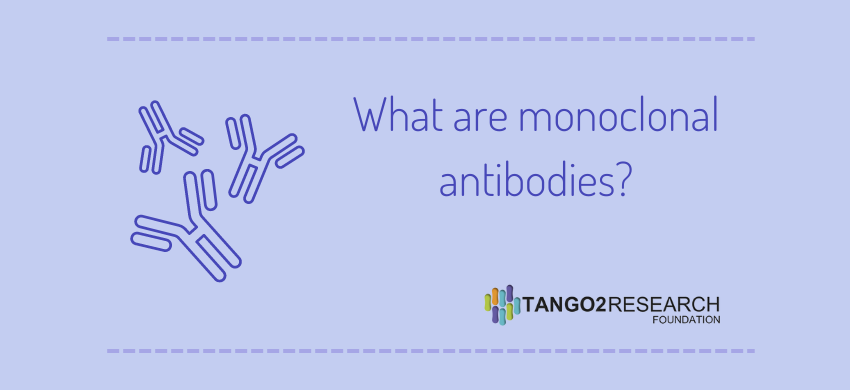Antibodies are blood proteins made by our immune systems that work to defend our bodies against antigens, which are foreign substances (Monoclonal Antibodies, 2021). Many antigens, such as bacteria and viruses, can make us sick; therefore, antibodies are an important factor in keeping us healthy (Definition of Antigen, n.d.). There are as many as 100 million antibodies with unique precision in the human body (Drug Discovery Institute: Production of Monoclonal Antibodies, n.d.).
Monoclonal antibodies are a special type of antibody made in a laboratory. The word “monoclonal” refers to the fact that the antibodies created in the laboratory are clones. They are exact copies of one antibody. These antibodies can be used for diagnosis and disease treatments for a wide range of conditions, such as autoimmune disorders, nervous system disorders, infections, and cancer (Monoclonal Antibodies, 2021). Monoclonal antibodies can also be used for research purposes in a variety of ways. They allow researchers to study where a protein is found in a cell and what other proteins it may interact with (Drug Discovery Institute: Production of Monoclonal Antibodies, n.d.).
In the case of TANGO2 deficiency disorder (TDD), an antibody recognizing the protein encoded by the TANGO2 gene will allow researchers to investigate where TANGO2 is found in the cell and what other proteins may be affected by its function. A better understanding of these aspects of TANGO2 will be a major step forward in understanding how mutations in this gene cause disease and devising treatment options for affected individuals.
References
Definition of antigen. (n.d.). National Cancer Institute.
Drug discovery institute: Production of monoclonal antibodies. (n.d.). Icahn School of Medicine at Mount Sinai.
Monoclonal antibodies. (2021, November 16). Cleveland Clinic.


